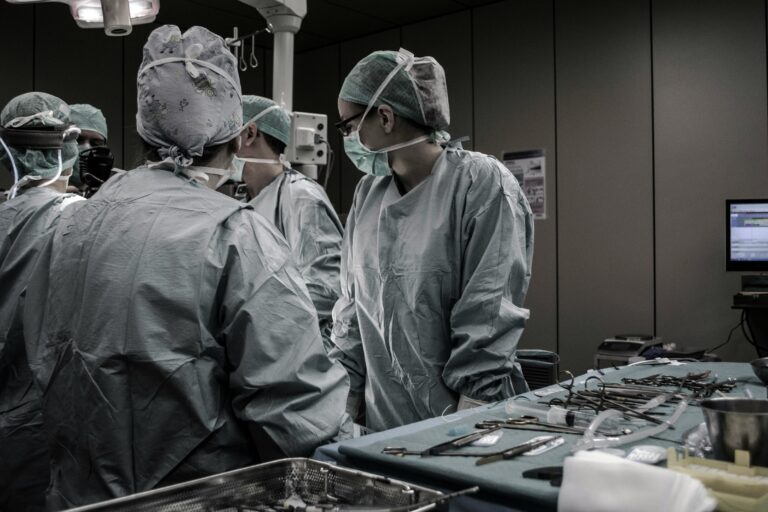Understanding Machine Learning in Healthcare
Machine learning works with millions of data points together to deliver near-accurate predictions. It enables healthcare professionals to provide valuable suggestions on time, assess the disease risk, and allocate the right resources for treatment.
Revolutionizing Patient Care and Diagnosis
Machine learning is revolutionizing healthcare today by bringing new ways to diagnose patients, and improve treatment and patient management. Early detection of the disease will help with treatment. With so much data, machines using machine learning can create and analyze features that would be difficult for humans to understand. As before: features are determined individually; they rarely come together. When we look at treatments alone, there are tips and advice for each patient, including their genetics, lifestyle, and medical history. This application both improves the quality of treatment and reduces new complications for patients. Applied machine learning can make people better, for example, by helping to prevent hospital readmissions, find the best treatment options, and manage patients’ healthcare remotely.
Benefits of ML Integration in Medical Practices
The integration of machine learning in healthcare offers numerous advantages:
- Improved diagnosis accuracy
- Personalized treatment plans
- Enhanced patient monitoring
- Streamlined administrative processes
- Accelerated drug discovery
Key Applications in Diagnosis and Treatment
Machine learning is transforming various aspects of healthcare:
Medical Imaging: ML algorithms can detect anomalies in X-rays, MRIs, and CT scans with remarkable accuracy.
Predictive Analytics: By analyzing patient data, ML models can predict disease risks and potential treatment outcomes.
Drug Discovery: ML accelerates the process of identifying potential drug candidates and predicting their efficacy.
Personalized Medicine: ML algorithms can tailor treatment plans based on individual patient characteristics and genetic profiles.
As we delve deeper into the applications of machine learning in healthcare, let’s explore how it’s revolutionizing medical diagnosis in more detail.
Growth of telemedicine and remote patient monitoring
There is a major force that machine learning is assisting which is the extending reach of telemedicine. Remote assessment of the patient data and symptoms using machine learning algorithms also assists health providers in diagnosis.
Challenges and Ethical Considerations
Admittedly so, the growing prominence of machine learning in the modern world, especially in the health care segment raises some challenges and ethical issues to be worked on. Let’s examine the critical factors that hinder the use of ML in the healthcare sector.
Regulatory Hurdles and Approval Processes
The healthcare field unfortunately is one of the most regulated or has very good reasons for such strict regulation within any industry. Meanwhile, introducing new technologies such as machine learning algorithms entails adherence procedures that are quite challenging. Below is a detailed summary of the key regulatory issues:
- FDA approval for the medical devices planning to use the ML approach
- Compliance with HIPAA and other laws related to data protection
- Proactively managing emerging technologies and legislative trends
Integration with Existing Healthcare Systems
The introduction of ML technologies in health care is not only the development of technologies and methods, it is the enhancement of existing systems in using the said tools with or without ML. Such integration comes with several challenges which include:
- Integration with old management systems
- Encouraging health workers to operate the new ML applications
- Compatibility between different ML systems and healthcare execution systems
Future Prospects of ML in Healthcare
The study of Machine Technology promises to develop fascinating and revolutionary medical technologies shortly. Let’s talk about a few important buffering factors that machine learning can greatly contribute to. There is great potential in healthcare. This can be done through the ability to improve the process of simple operation and diagnosis, thus reducing operating costs. If they reduce operating costs, this means that patients will pay very little for medical services. It can be seen.
Potential for decreasing the cost and increasing the availability of healthcare services
Machine learning has great potential to help achieve cheaper and obtain healthcare. This could be achieved through performing menial tasks and the possible enhancement of the diagnostic process therefore the operational costs will be lowered. If they cut down the operational costs, it means that they will charge little for their healthcare services to the patients.
- Administrative Work.
- Better management of supplies.
- Further, better monitoring and even preventive care could be achieved.
Impact
- Administrative Work Working savings of up to 30%.
- Diagnostic Performance Increased unnecessary tests avoided.
- Preventive Care Reduced Costs in Healthcare.
- Integration of wearable health devices with countries’ Permanent M.
There is no doubt that the wedding of ML and PHR abstract devices is set to change the idea of personal health management. Hundreds of smart devices can perform this action efficiently but every time rather than a piece of advice machine learning will interpret the data.
Conclusion
Machine Learning is transforming healthcare by enhancing diagnostic accuracy and personalizing treatment strategies. As we look to the future, the integration of Machine Learning in healthcare holds immense promise. To fully harness its potential, collaboration between healthcare providers, data scientists, and policymakers is crucial. By addressing ethical considerations and continually refining ML models, we can create a healthcare ecosystem that leverages technology to provide more accurate, efficient, and personalized care for patients worldwide.


